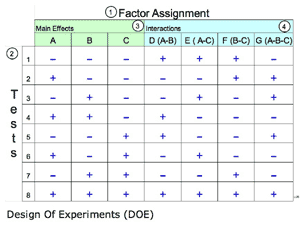Overview

Qualimations Analytics takes your through extensive use of data, statistical and quantitative analysis, explanatory and predictive models, and fact-based management to drive decisions and actions. Analytics at Qualimations is more than just analytical methodologies or techniques used in logical analysis. It takes you through a practical process of transforming data into actions through analysis and insights in the context of organizational decision making and problem solving. The Analytics includes a range of activities, including business intelligence, which is comprised of standard and ad hoc reports, queries and alerts; and quantitative methods, including statistical analysis, forecasting/ extrapolation, predictive modelling (such as data mining), optimization and simulation.
These techniques enable designers/analyst to determine simultaneously the individual and interactive effects of many factors that could affect the output results in any design. The analytical techniques also provides a full insight of interaction between design elements; therefore, helping turn any standard design into a robust one.
In brief this course supports to spot the sensitive parts and sensitive areas in your process that cause problems in Yield, revenue,cost. Analyst will be able to fix them and produce robust and higher yield designs prior going into production.
Learn from real time analyst and with actual data
To gain an understanding of how analyst and managers use business analytics to formulate and solve business problems and to support revenue enhancement and managerial decision making.
The objectives of this course is as follows.- To gain an understanding of how analyst and managers use business analytics to formulate and solve business problems and to support revenue enhancement and managerial decision making.
- To become familiar with the processes needed to develop, report, and analyze business data.
- Factorial analysis provides a cost-effective means for solving problems and developing new processes. To learn how to use and apply various data analysis software including SPSS, MINITAB, Excel add-ins to solve business problems.
- Statistical data Analysis of Variance
- One /two and multiple Factor Experiments.
- Model evaluation and Equations.
- Residual Analysis and Normal Probability plots.
- Hypothesis Testing T and F tests.
- One /two and multiple Factor Experiments
Methods for Analytics training and certification
"Method: This course stresses the factors that impact the performance of business decision makers and the data management and analysis methods that have value to them. This course includes lectures, presentations, and demonstrations that emphasize discussion and illustration of methods, as well as hands-on, practical exercises that provide both a sound base of learning and an opportunity to test and develop skill. The use of software supports the presentation of the material. Candidates participate in exercises ,project discussions. You will be expected to complete a projects that apply analytics principles and techniques to a business problem. " Qualimations core certification program is the best suited to do so... Register
Overview of Business Analytics- Introduction to Analytics
- To become familiar with the processes needed to develop, report, and analyze business data.
- Data Structures and decision support
- Statistical data Analysis of Variance
- Data trends and effectiveness
- Organization/sources of data
- Importance of data quality .
- Data Structures and decision support
- Dealing with missing or incomplete data
- Time series Analysis
- Data Classification
- Analytics and Software support
- Data Mining Process
- Market Data Analysis
- Data Analysis and Statistic
- Classification and Regression Trees
- Data trends and effectiveness
- Optimization
- Marketing mix, capital budgeting, portfolio optimization
- Decision Making under Uncertainty
- Risk Analysis
- Inventory Management
- Sensitivity Analysis
Analytics and Experiments
Assume you have 2 factors that affect your low output problem or your sales problem, then a properly designed experiment can answer some of these Questions, Every factor operates at different levels or stages during a process. These levels are either determined so that the process adds value to the product and hence there is a value associated with it. As an example, a flight management over booking could be set at two levels, one which takes low levels of risk and other which takes high risk. The factor here is risk, the levels are low and high. When you bake a cake, the factor are temperature and time in the oven, you could keep at high temperature or low temperature and this can be done at several levels of time.The objective in this experiment is to make a perfect cake. The factors that contribute value, like temperature and time are also the same factors that contribute to the issue or problem. Thus variation in output is contributed by mostly change of levels in these factors. Identifying these levels and finding their relation to the issue or failure is important in the Deep Analysis process.
Which factor has more influence on the problem ?
At what level of the factor the problem is minimum ?
At what level of the factors the factors other that the two you know affect the least.
Risk Analysis
Risk Analysis focuses on predicting future or potential failure analysis and maintenance cost of running the whole program. At Qualimation Tech we have developed methods that helps in early detection and correction of the problems also this Information is needed to perform root cause analysis on product failures. Since field failure forms as basis for FMEA, study of warranty is essential to the quality managment process. The Warranty information also forms as basis to feed subsystem and component level reliability information... Read More
We Provide
As part of the Business Analytics training course we provide you the following:
World Class training
Training Manual
Practical Check Sheets
Online and On Call Support any time ( call for any doupts from site or field )
Data Analytics Course at Chennai
1st Sep to 1st Nov Black Belt Six Sigma, Online, WhatsApp: +91 98950 93119
E. : info@qualimations.com
Reg. Chennai: +91 9940622700
Reg.Online: Register for the Next Course












